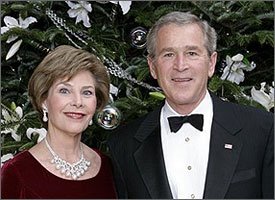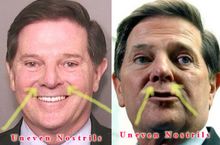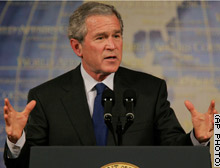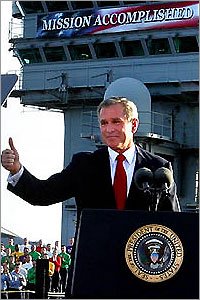
Bin Laden's niece
appears in racy photos
NEW YORK (AP) -- Osama bin Laden's niece, in an interview with GQ magazine in which she appears scantily clad, says she has nothing in common with the al Qaeda leader and simply wants acceptance by Americans.
"Everyone relates me to that man, and I have nothing to do with him," Wafah Dufour, the daughter of bin Laden's half brother, Yeslam Binladin, says in the January edition of the magazine, referring to the al Qaeda leader.
"I want to be accepted here, but I feel that everybody's judging me and rejecting me," said the California-born Dufour, a law graduate who lives in New York. "Come on, where's the American spirit? Accept me. I want to be embraced, because my values are like yours. And I'm here. I'm not hiding."
Dufour, who adopted her mother's maiden name after the September 11, 2001, attacks that have been blamed on bin Laden, appears in several provocative photos in the magazine.
In one, she is sprawled on a bed wearing lingerie and a feather boa. In another, she appears in a bubble bath-filled tub.







